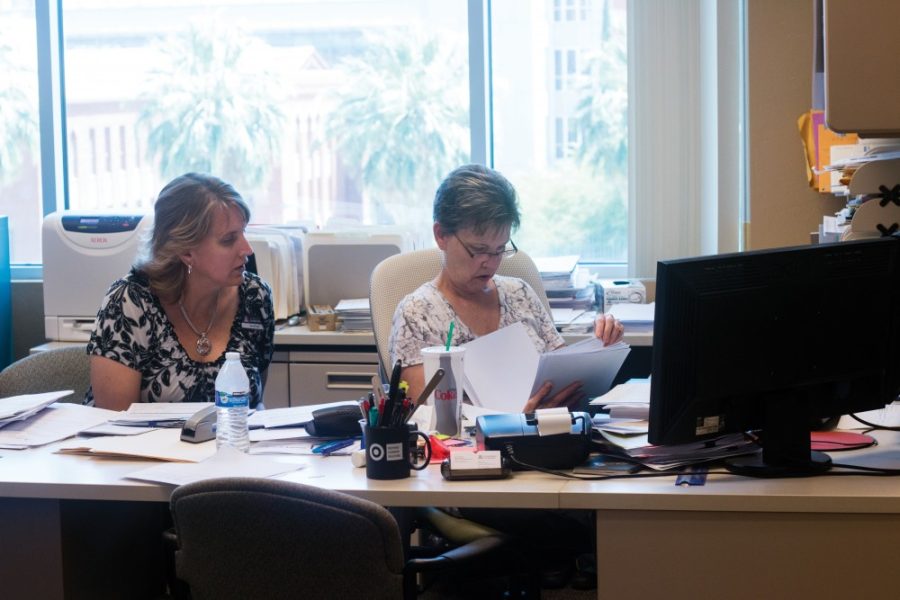The UA Department of Human Resources has released updated information about the amount wages will increase for faculty, staff and graduate assistants for the Fall.
The compensation increase program was announced May 13 by UA administration. Starting in September, UA departments are required to pay more to their employees — the first institution-wide increase in three years.
“All benefits-eligible faculty, classified staff, and appointed professionals with hire dates on or before May 13, 2016 will receive a $500 increase to their base pay,” according to the Human Resources website.
RELATED: UA to increase the wages of faculty, staff and graduate assistants
Stipend increases will also be given to graduate assistants and associates.
Alex Karaman, a founding member of the Graduate Student Organizing Committee, said the wage increase is an important step in starting the process of getting graduate students higher wages.
“Graduate students live paycheck to paycheck, normally taking on debt in the thousands of dollars,” Karaman said. “In that context, every small bit helps.”
Karaman said the $500 increase won’t immediately grant graduate students a living wage — an important topic many student groups have protested in the past.
“That means that this raise will not get students out of poverty, will not afford grads a living wage and will only be successful if we build on it to have graduate students paid fairly,” Karaman said.
UA Faculty Chair and Regents’ Professor in the psychology department, Lynn Nadel, said administration has put a plan in place to solve the problem of wages.
“I was involved in some of the early planning for this effort and it was clear that the motivation for doing this was not to put out a token, but rather to start a multi-year process that should allow us to address a serious and pressing problem,” Nadel said.
The increase may be small, but the commitment to faculty is important, Nadel added.
“The extent of the problem is such that whatever gets done this year will seem woefully inadequate,” he said. “But what is critical is that there is a commitment to doing something every year, barring serious financial constraints. That is new, and important.”
The programs’ purpose is “to increase the competitiveness of our salaries and recognize meritorious performance,” according to the HR website. The website also said the pay increase is an “essential strategy in attracting and retaining outstanding faculty and staff.”
According to a Arizona Board of Regents Fiscal Year 2016 Annual Personnel report, UA had the highest faculty turnover rate of the three major universities in Arizona. The university also ranked last out of its fifteen peer institutions for average faculty salary.
The College of Fine Arts was found to have faculty wages furthest from market value in a UA salary benchmark study, while The College of Pharmacy and College of Optical Sciences paid their faculties the best.
Director Bruce Brockman of the School of Theatre, Film and Television said the wage increase should help in retaining faculty, despite the low wages.
“I think any increase is going to help to retain faculty members,” he said. “The salary increases have come to the UA very few and far between since I’ve been here, so they will be welcomed I’m sure.”
Brockman said employees will appreciate being rewarded for their excellent performance and staying with the institution.
Leaders in each UA department will find ways to reallocate money to support its employees, according to the HR website. “Once all eligible employees are provided with a $500 increase, units may use remaining funds to recognize contributions and address market and equity concerns.”
Nadel said while information still needs to be revealed, the work should be done in a proper way.
“In the end, what will matter is how it plays out in every unit,” Nadel said. “And the hope is that it is both fair and strategic everywhere.”
Follow Shaq Davis on Twitter.









